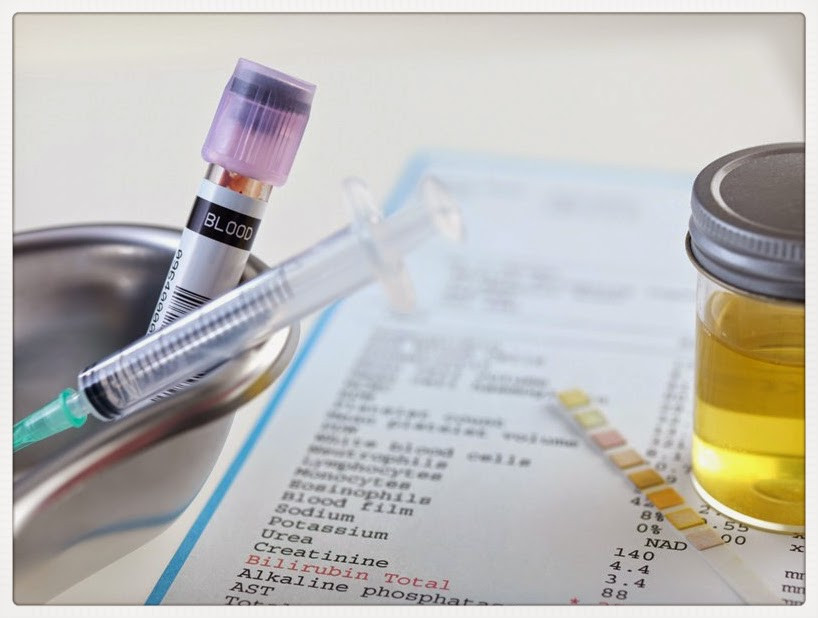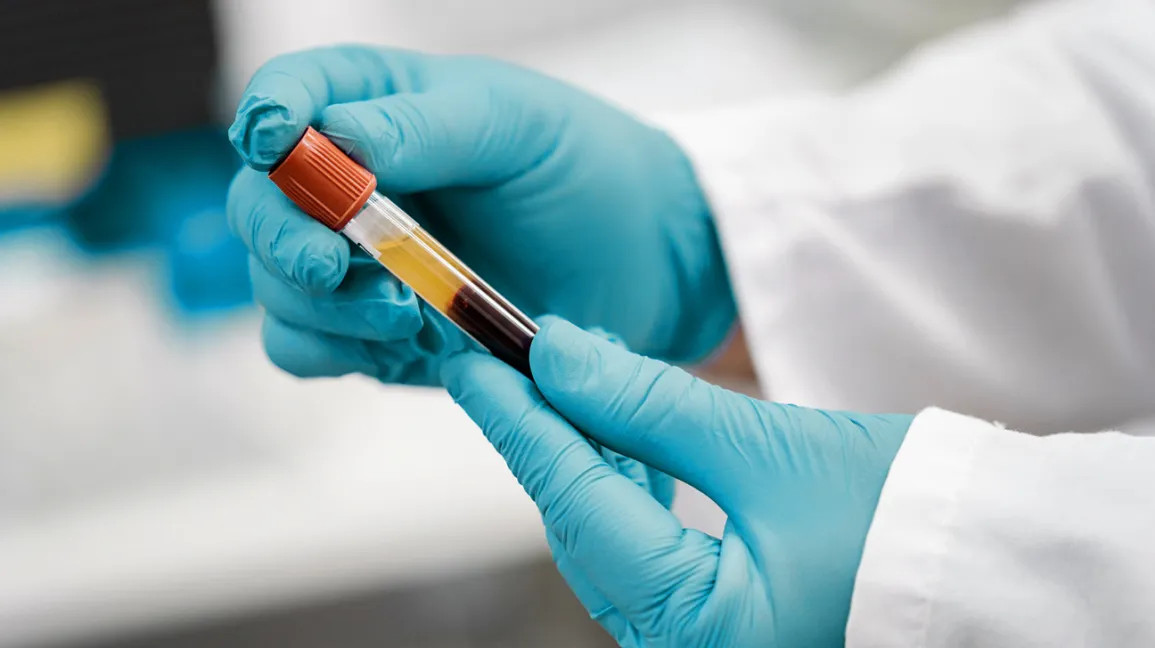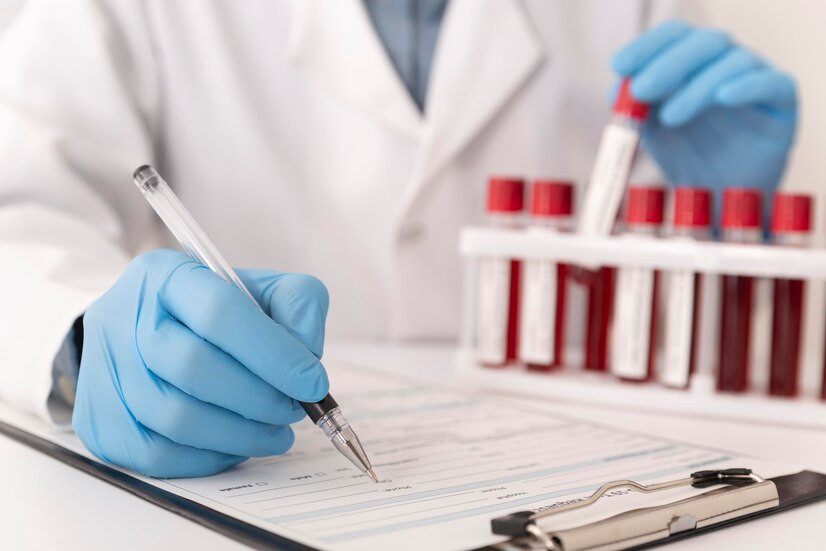Definisi
Prolaktin merupakan hormon yang bertanggung jawab atas laktasi, perkembangan jaringan payudara tertentu serta berbagai proses di dalam tubuh. Tingkat prolaktin pada umumnya rendah pada laki-laki dan pada pasien yang tidak hamil atau tidak menyusui serta meningkat pada ibu hamil dan menyusui. Kelenjar pituari membuat dan mengeluarkan hormon prolaktin. Kelenjar pituari merupakan kelenjar kecil sebesar kurang lebih kacang terletak pada otak dibawah hipotalamus. Kelenjar pituari merupakan bagian dari sistem endokrin dan bertanggung jawab pada berbagai hormon penting dalam tubuh termasuk prolaktin.
Dopamin (komponen kimia pada otak) dan hormon esterogen memiliki kendali atas produksi prolatin dan melepaskan pada kelenjar pituari. Beberapa faktor yang dapat menghasilkan prolatin pada jaringan ini seperti stimulasi pada puting susu, olahraga dan tingkat stres seseorang. Prolaktin memiliki kontribusi pada berbagai fungsi tubuh, tetapi fungsi utama dari prolaktin sebagai perkembangan kelenjar susu dalam jaringan payudara dan produksi susu, laktasi serta menyusui.
Indikasi
Pemeriksaan prolaktin bertujuan untuk membantu diagnosis prolaktinoma (suatu tipe tumor pada kelenjar pituari), mengetahui penyebab dari ketidakteraturan menstruasi pada perempuan atau kemandulan, membantu mencari penyebab dari hasrat seksual laki-laki atau disfungsi ereksi.
Pada perempuan, dokter akan menyarankan pemeriksaan ini bila memiliki gajala siklus menstruasi tidak teratur atau tidak mengalami menstruasi, kemandulan, keluarnya air susu pada saat tidak sedang hamil atau menyusui, ada benjolan lunak pada payudara, sindrom menopause.
Pada laki-laki, dokter akan menyarankan pemeriksaan ini bila mengalami penurunan hasrat seksual, kesulitan ereksi, pembesaran payudara, atau pada kondisi langka pria menghasilkan air susu.
Kontraindikasi
Pemeriksaan prolaktin tidak memiliki kontraindikasi khusus.
Persiapan sebelum Pemeriksaan
Tidak ada persiapan khusus sebelum melakukan pemeriksaan prolaktin. Pemeriksaan ini tidak mewajibkan Anda puasa sebelumnya. Pemeriksaan ini dilakukan sekitar 3-4 jam setelah bangun. Tingkat prolaktin akan berubah seiring berjalannnya hari tetapi paling tinggi pada pagi hari. Informasikan pada dokter bila Anda mengonsumsi obat tertentu seperti pil KB, obat tekanan darah tinggi dan antidepresan.
Prosedur Pemeriksaan
Pemeriksaan prolaktin menggunakan sampel darah. Petugas laboratorium akan membersihkan lengan Anda dengan kapas alkohol dan mengambil sedikit darah Anda dari pembuluh darah vena di lengan menggunakan spuit steril. Pada bayi, pengambilan darah dilakukan pada tumit.
Bila darah diambil melalui pembuluh darah, permukaan kulit akan dibersihkan dengan antiseptik dan diikat dengan alat khusus (tourniquet) pada area lengan untuk memberikan tekanan dan menyebabkan pembuluh darah membengkak dengan darah. Jarum untuk mengambil sampel akan dimasukkan melalui pembuluh darah (biasanya pada bagian lengan dalam atau siku atau pada bagian punggung tangan) dan darah akan diambil masuk ke dalam vial atau syringe. Setelah prosedur, tourniquet dilepaskan dan bekas area pengambilan darah akan ditutup dengan perban untuk menghentikan pendarahan.
Selanjutnya, darah akan dimasukan ke dalam tabung darah dan diperiksa oleh petugas laboratorium pada mesin khusus. Bergantung bagaimana metode pemeriksaan pada laboratorium pemeriksaan anda, pemeriksaan ini mungkin akan memakan waktu sehari untuk mendapatkan hasil.
Nilai Normal dan Abnormal
Secara umum, nilai normal prolaktin pada orang dewasa :
- Laki-laki : kurang dari 20 ng/mL (nanogram per mililiter)
- Perempuan yang sedang tidak hamil atau menyusui : kurang dari 25 ng/mL
- Perempuan yang sedang hamil atau menyusui : 80 sampai 400 ng/mL
Nilai normal pemeriksaan prolaktin dapat sedikit berbeda antara satu laboratorium yang satu dengan yang lain. Nilai abnormal pemeriksaan prolaktin bila lebih tinggi dibanding batas normal.
Hasil dan Saran (Pemeriksaan Lanjutan)
Hasil pemeriksaan prolaktin yang lebih tinggi dalam darah dapat menyebkan beberapa gejala seperti kemandulan, kehilangan gairah seksual dan keluarnya air susu dari puting ketika Anda sedang tidak hamil atau menyusui. Beberapa faktor yang dapat menyebabkan peningkatan prolaktin dari normal yaitu prolaktinoma (adanya tumor pada kelenjar pituari-salah satu penyebab yang paling umum), pengobatan tertentu, kondisi kesehatan tertentu dan tumor pada kelenjar pituari lainnya.
Prolaktinoma umumnya terjadi pada pasien dengan usia dibawah 40 tahun tetapi jarang terjadi pada anak-anak dan dewasa. Dokter akan menyarankan pengobatan prolaktinoma dengan pengobatan tetapi juga dapat diobati dengan operasi dan terapi radiasi.
Beberapa obat-obatan yang dapat menekan produksi prolaktin terkait dengan dopamin karena dopamin membantu menekan produksi hormon prolaktin. Beberapa obat tersebut seperti risperidon (obat antipsikotik), beberapa obat tekanan darah tinggi, obat untuk mengobati mual dan muntah serta obat anti nyeri yang mengandung opioid.
Sedangkan kondisi kesehatan yang dapat memengaruhi hormon prolaktin seperi gangguan ginjal dan hipotiroidisme.
Konsultasikan ke Dokter yang Tepat
Bila hasil pemeriksaan prolaktin Anda menunjukkan hasil tidak normal, Anda dapat berkonsultasi dengan dokter umum untuk mendapatkan diagnosis dan terapi yang sesuai. Bila diperlukan, Anda juga dapat berkonsultasi dengan dokter spesialis kandungan atau endokrinologis sehingga didapatkan penanganan dan terapi yang tepat.
Mau tahu informasi seputar hasil pemeriksaan laboratorium, radiologi, dan lainnya? Cek di sini, ya!
- dr. Monica Salim
Prolactin Levels. (2020). Retrieved 22 May 2023, from https://medlineplus.gov/lab-tests/prolactin-levels/
Prolactin Blood Test (PRL). (2022). Retrieved 22 May 2023, from https://www.testing.com/tests/prolactin/
What is a Prolactin Test?. (2021). Retrieved 22 May 2023, from https://www.webmd.com/a-to-z-guides/prolactin-test
Prolactin Blood Test. (2018). Retrieved 22 May 2023, from https://www.ucsfhealth.org/medical-tests/prolactin-blood-test
Prolactin Level Test. (2018). Retrieved 22 May 2023, from https://www.healthline.com/health/prolactin
Prolactin (Blood). (2023). Retrieved 22 May 2023, from https://www.urmc.rochester.edu/encyclopedia/content.aspx?contenttypeid=167&contentid=prolactin_blood
Prolactin Levels : Why Get a Prolactin Test and What to Expect. (2022). Retrieved 22 May 2023, from https://www.medicalnewstoday.com/articles/322279
Prolactin. (2022). Retrieved 22 May 2023, from https://my.clevelandclinic.org/health/articles/22429-prolactin











